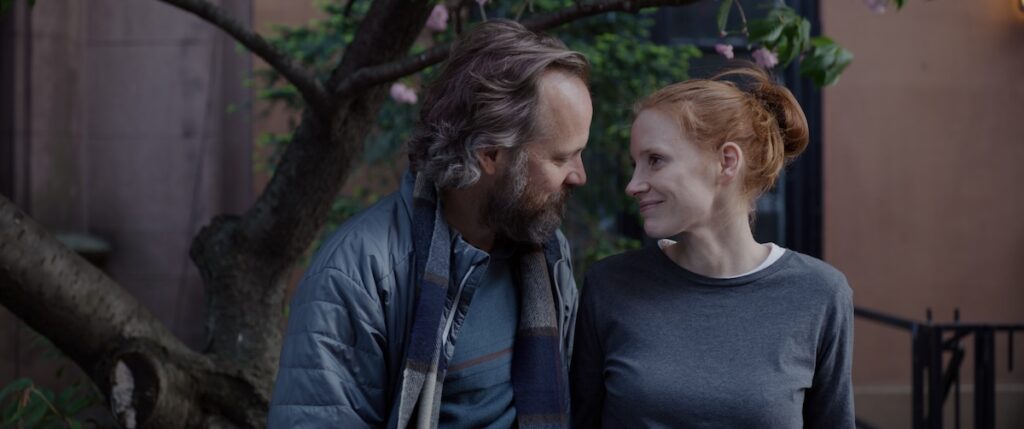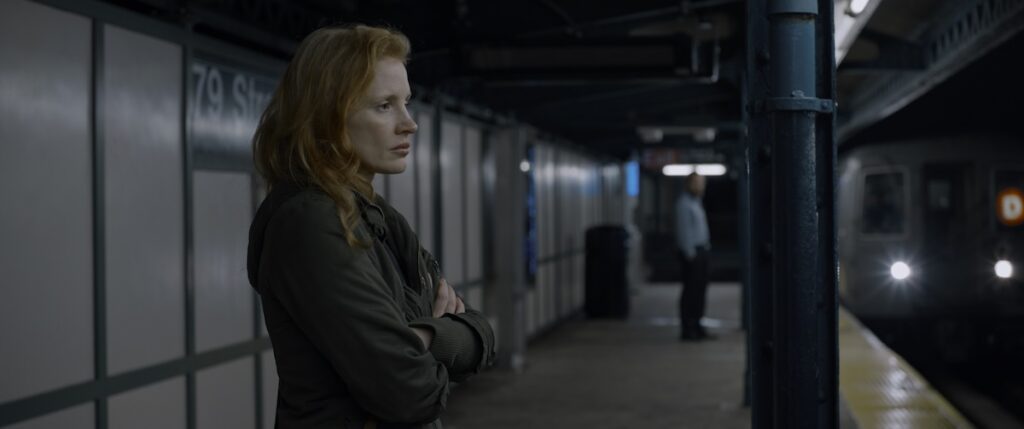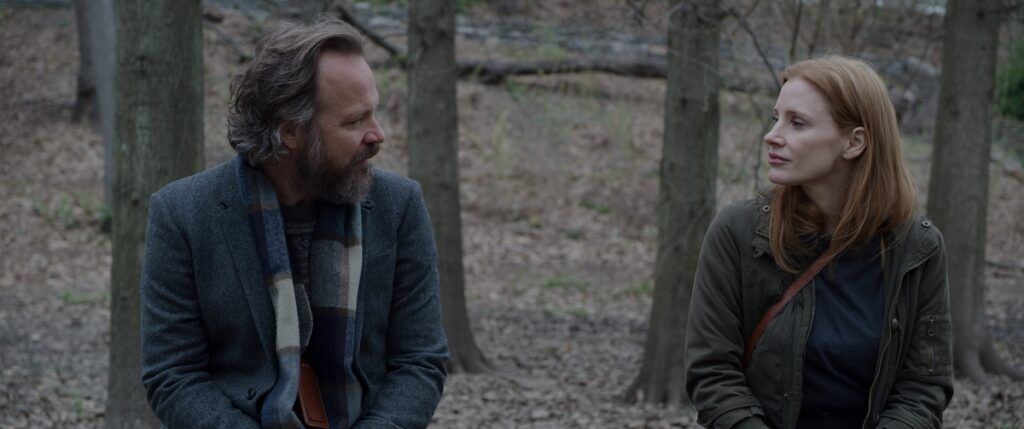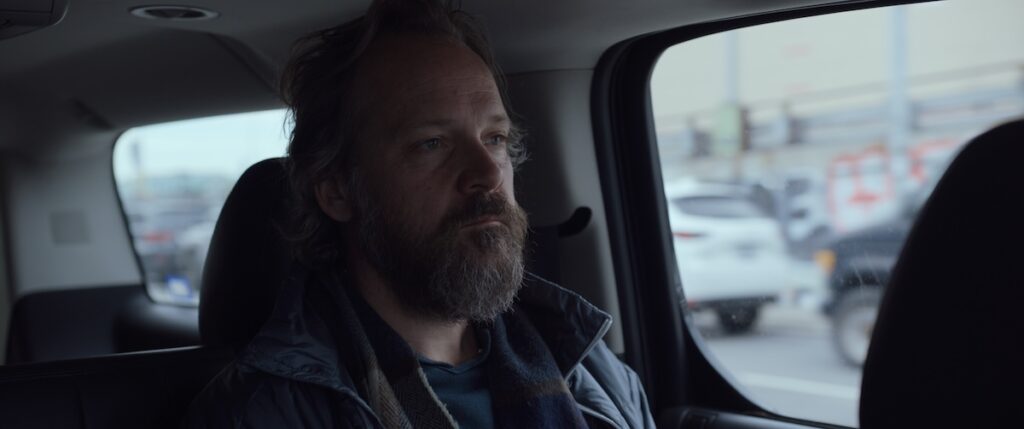This website uses cookies so that we can provide you with the best user experience possible. Cookie information is stored in your browser and performs functions such as recognising you when you return to our website and helping our team to understand which sections of the website you find most interesting and useful.
Interview: Director Michel Franco on Memory, Jessica Chastain and why movies should be messy
By Shivani Dubey | 19 February 2024 | Culture
Tempus sits down with Memory director Michel Franco to talk about his new film and his cinematic inspirations
 What happens when a filmmaker decides to explore the juxtaposition of memories — one in its degenerative state and the other in its response to years of abuse and trauma? You get Michel Franco’s new film Memory.
What happens when a filmmaker decides to explore the juxtaposition of memories — one in its degenerative state and the other in its response to years of abuse and trauma? You get Michel Franco’s new film Memory.
Starring Jessica Chastain and Peter Sarsgaard, Memory sees Sylvia, a social worker in Queens, New York lead a very simple and structured life. However, her life takes a turn when a strange man named Saul follows her home after attending a very uncomfortable high school reunion. The next morning, she finds Saul asleep in the rain outside her apartment, which prompts her to finally make contact with him and learn that he has early onset dementia.
Sylvia herself is a recovering alcoholic and survivor of abuse, and initially wonders if Saul was one of her attackers in high school and doesn’t remember it because of his condition. However once she is proven wrong, she forges a relationship with him in what leads to a slow-burn, tragic romance between the two, much to the dismay of both their families, who attempt to interfere in varying different ways.
Throughout the film, we see this relationship unfold as the characters beautifully portray how our memories play into our everyday lives, including being used as a weapon to keep people in control. With Sylvia, we see how traumatic events affect the way we (and the people around us) process and distort memories, while Peter Sarsgaard’s Saul shows us the toll a degenerative condition can take on our brain.
We spoke to the film’s director, Michel Franco — who also wrote and produced the film — about the various aspects of the film, working with Jessica Chastain and his movie inspirations. What was the inspiration behind this film? It is very different from your other features, even though it carries similar themes.
What was the inspiration behind this film? It is very different from your other features, even though it carries similar themes.
I think it had something to do with exploring whether these two broken characters, in their mature age, stand a chance of finding love, or finding something similar to love. To give themselves the chance to still be happy somehow, or to experience positive things, when society keeps telling them not to, which I find very sad.
You have previously been very emotional when speaking about Saul as it stems from your own fears of the degenerative disorder. Can you elaborate more on that?
I don’t have any reasons to worry about that, thankfully, but losing one’s mind is probably the most terrifying thing because the questions are huge. Are you still yourself if you don’t know who you are? If you lose your memory and you don’t know what you’ve been through, it raises interesting, scary questions.
So I think that’s why I wanted to explore this condition, especially at an early stage, because that is when decisions are made and conflicts arise. And it’s also unpredictable in terms of how far it is going to go — as most mental conditions are. There are no patterns and they can grow and develop in different ways.
You play with memories in different ways here. One is a degenerative medical condition and the other is the effect of years of abuse and trauma. How do you deal with the juxtaposition of that?
It kind of surprised me while I was writing the outline to learn that that was the concept that brought the whole thing together. I wasn’t trying to be clever or anything, I wasn’t looking for it, it kind of showed up on the page. And then I said, well, it has to be called Memory.
It sounds like design but I just found it interesting that she can’t forget and he can’t remember. And when you put it that way, it sounds so simple, but the way it works on screen I think is rewarding for audiences. We as humans often rely on our memories and our recollections of events. And when we’re proven wrong, it can be life changing. It seems as though Sylvia has been dealing with this her whole life in the form of emotional manipulation, neglect, and being overlooked by her own mom. This is something I noticed in Saul as well with the restrictions his family puts him in — the use of manipulation to keep them both in place. Can you speak to that?
We as humans often rely on our memories and our recollections of events. And when we’re proven wrong, it can be life changing. It seems as though Sylvia has been dealing with this her whole life in the form of emotional manipulation, neglect, and being overlooked by her own mom. This is something I noticed in Saul as well with the restrictions his family puts him in — the use of manipulation to keep them both in place. Can you speak to that?
I think we always tell stories to ourselves. It’s also a mechanism to survive. You can never be totally right or wrong about anything. So I like that grey area where family dynamics move. I find it very interesting and heartbreaking how sometimes loved ones try to protect someone and they end up doing more harm, like Saul’s brother is doing to him.
But I never give the audiences a straight answer. Like Sylvia’s background is widely discussed from her mother’s point of view and it turns out not to be precise. I think that’s life and it gives the audiences an interesting point of view where there’s room to make up an idea of what happened.
Sylvia’s mother also seems to be in a lot of denial from the whole experience as well, because she just refuses to acknowledge that Sylvia was ever abused in the first place.
Yes, and she took part in it. She was active in that abuse, which makes it terrifying. But it is also the reality of how much damage parents can do to their kids. There is a moment in the film when Saul goes to the bathroom and then forgets which room to go in. And I, like many others, expected the worst. You’ve said in an interview that the audience should never feel safe watching a movie. Why is that?
There is a moment in the film when Saul goes to the bathroom and then forgets which room to go in. And I, like many others, expected the worst. You’ve said in an interview that the audience should never feel safe watching a movie. Why is that?
On film, there should always be dramatic tension, otherwise it’s boring. And it’s not that hard for me as a writer-director to do it. Because like you said, the audience is always expecting the worst. So it’s easy to suggest that things can go wrong.
In my mind, even if he goes to the wrong room, it wouldn’t be that much of a problem, because he would immediately realise he shouldn’t be there. But the audience is always thinking the worst, because drama is rewarding. And if you’re looking at a studio [film] where there is a happy ending and it is never going to be very messy, for me it is very boring because there is never any danger.
You left the film open-ended. Why? And what do you hope/think happens to Sylvia and Saul once the film ends?
Well, there’s closure in a few ways. I think the most important thing is when Sylvia gets the story straight about what happened. And she gets acknowledged for what pretty much means the beginning of all the troubles in her life. And then she’s not alone because her daughter brings Sylvia’s boyfriend Saul (so to speak) back home. Will that last an hour, a week, a month, a year? We don’t know. But again, that’s life.
I don’t see it so much as an open ending as I see how open life is. You never know what’s in store, especially with Saul’s condition. But what matters is that you take it one day at a time. They’re there now, and that’s the feeling I want the audience to go home with.
Do you think they’d be happy together?
That’s up to you or the audience — I wasn’t there. I mean I have my idea of what happens but I wouldn’t share them because I don’t want to impose. I want everyone to think about what will go on. Both Jessica and Peter are incredible in this film. Were they always who you had in mind when casting?
Both Jessica and Peter are incredible in this film. Were they always who you had in mind when casting?
No, it was my agent and Jessica’s agent that thought it was a good match. And they’re so right that we’ve already shot two movies together, and we’ll definitely do more for sure. So I have to give credit to our agents who did a fantastic job of putting this together.
And then I asked Jessica who she thought would be interesting to play Saul and she came up with Peter Sarsgaard and I immediately understood why she thought he was the best option. I wanted to make sure that the actors shared chemistry on screen, so why not go with the main actor that she wants to play with?
Finally, I just wanted to ask who are your film inspirations? Are there any directors or films you look up to? And did any director or film inspire Memory?
My favourite director, I think, is Luis Buñuel, a Spanish director who made his best work in Mexico. Rainer Werner Fassbinder, the German filmmaker. And for this movie, while writing, I saw Minnie and Moskowitz by John Cassavetes. There’s something about these mature characters that are almost falling in love as teenagers that I hadn’t seen in any other film that was played in a real way, with depth.
Memory is in UK and Irish cinemas from 23 February memoryfilm.uk







